# 1 The Beauty of Feeling Lost in South Korea
On the kindness of strangers, useful apps, and finding community
My first dispatch comes from the Toji Cultural Center in Wonju, South Korea, an hour southeast by train from Seoul. Daniel and I have been invited to stay here as writers-in-residence for the month of August.
It’s a huge gift to be here, among mountains and rice paddies, and focus on my writing every day. But to keep things real: The presence of low-flying jets from a nearby military base is unnerving, as is the uncanny amount of fungus gnats whose sole purpose in life is to crash-dive into my eyes.
Nothing Is as You Expect it to Be
I’d never been to South Korea until I landed at Incheon Airport in July 2023. I followed the signs in a universal language called “pictograms” and found the train station. I looked for a machine that sold Tmoney Cards, the so-called indispensable rechargeable transportation card mentioned in every guide. I had to get one, so I looked and looked. But there was only one type of vending machine and it sold Korea Tour Cards. Was that what I needed? It was.
Lesson learned: Nothing is as you expect it to be.
The vending machine dropped my card wrapped in a cute little box as though it were a candy bar. I tried charging it at the nearby ticket machine and was unsuccessful. Then Kind Stranger #1 said, “See You.” I felt he meant well, but I didn’t understand his meaning. He pointed. A supermarket window read, “CU.”
I took his advice, even though I considered it odd to charge my card at a supermarket. Inside the CU, I handed the cash registrar my Tmoney/Korea Tour Card along with my credit card and told her an amount in English. She shook her head. I typed the amount on my phone and showed it to her. It was still no. Kind Stranger #2 said, “Cash only.” Really? How unexpected to charge a digital card with cash.
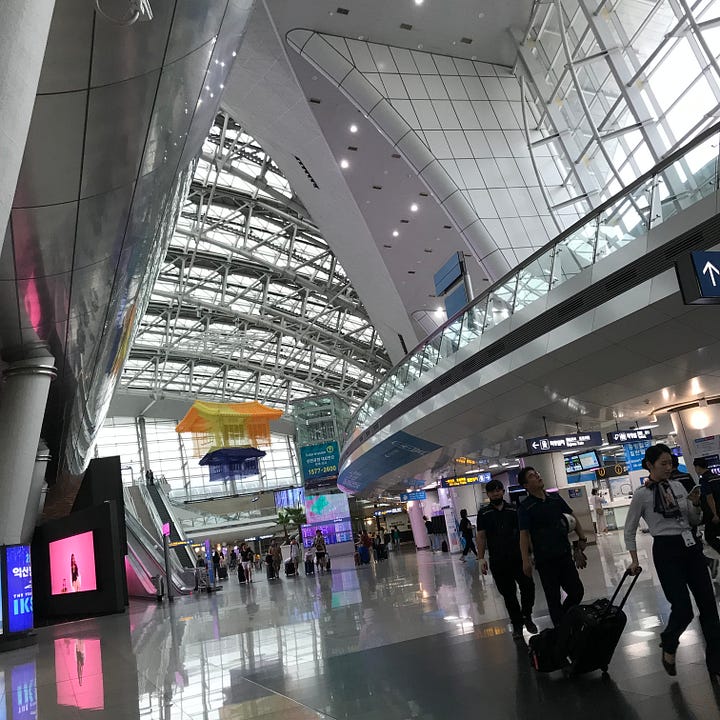
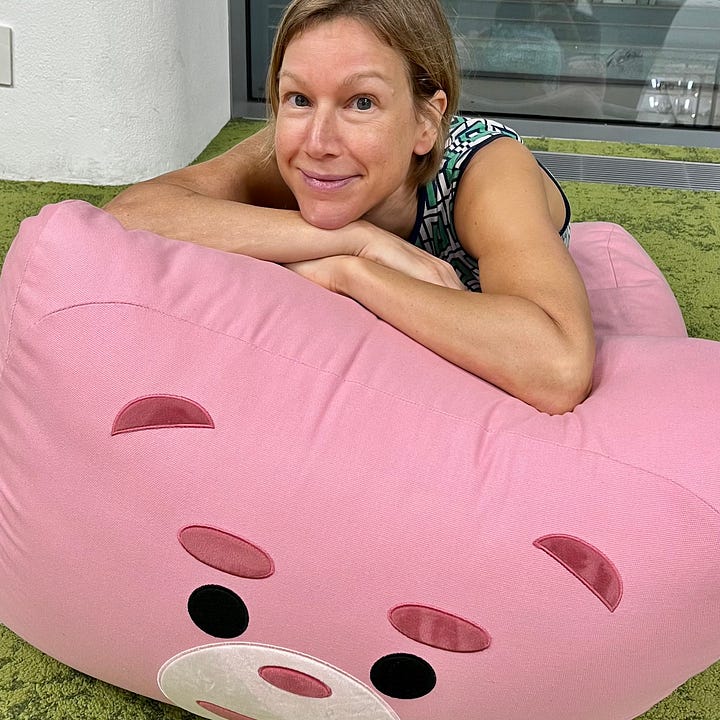
The Korean Language
“Did you learn Korean yet?” friends had asked me in advance upon hearing I would travel to the Korean peninsula. “Believe me: Koreans don’t speak English.”
I believed them and still didn’t learn Korean.
Am I stubborn? Certainly. Lazy? Possibly not. English is my second language, French my third. I deciphered Greek and Latin texts in school, speak a bit of German, and can understand some Italian and Spanish. But I didn’t feel motivated to learn a language that would serve me for only seven weeks. As a nomad moving from country to country, I cannot expect myself to fully adapt each time. I usually learn to thank and greet people in advance and add more phrases along the way.


Papago, Kakao, Starbucks, and Smiles
Seoul is an international metropolis and easy to navigate as an outsider. In the smaller provincial cities, I found it more challenging to communicate with people whose language I didn’t speak. Yet I managed.
I used Papago, a free Korean translation app, to scan restaurant menus and read the choices in what resembled comprehensible English most of the time. When the translation failed, I took the chance to find out what “Black Communist America” tasted like.
I used Kakao Maps, a Korean alternative to Google, to check where an arriving bus was headed. I also hopped on in good faith and verified the direction once the bus left. This is not recommended when you need to catch a flight to Jeju island.
I entered embassies such as Starbucks and banked on my foreignness. I spoke into my phone, “The last bus is gone and taxis won’t pick us up this far out of town. Can you help?” Papago translated my plea and a ride arrived fifteen minutes later, just as the clouds broke.
I observed others more keenly than usual. I read their eyes, their hand gestures, their foreheads, their nods. Our body languages were not identical, yet they overlapped. Smiling can bridge gaps between words and worlds.
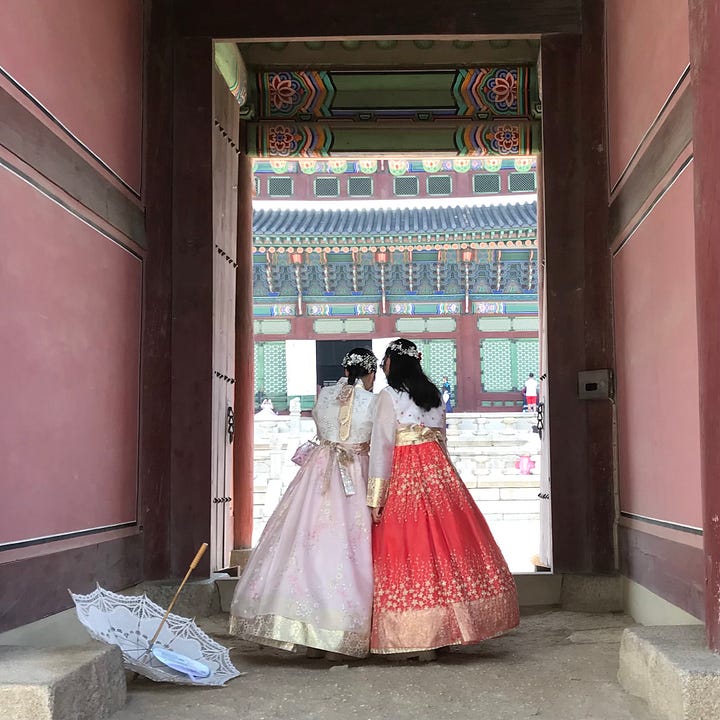
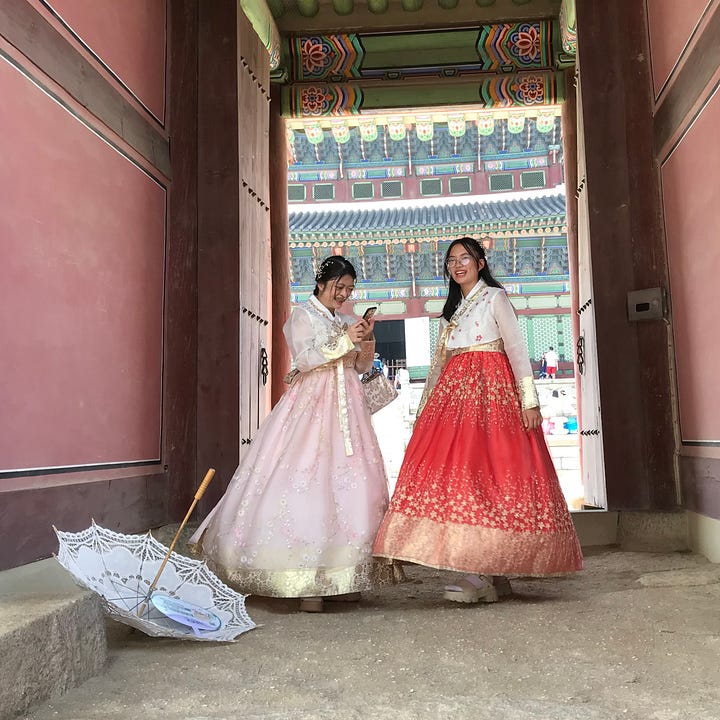
Compassion Goes Beyond Language
Not reading, speaking, or understanding Korean did make me feel vulnerable. It was disorienting to stare at a billboard or map and grasp absolutely nothing. It was limiting to rely on my phone to get my thoughts across. There were times, I made the wrong choice, didn’t get what I wanted, and felt lost. But that wasn’t necessarily bad.
The beauty of feeling lost is the hope that you can be found. That others can reach for you and establish a connection you alone could not achieve.
Kind Stranger #3 explained why the train manager was kicking me out: The rails were flooded; if I followed him, he would put me on the right bus. We conversed along the way.
Kind Stranger #4 handed me half of her sliced apple when I asked where to purchase fresh fruit in the neighborhood—fruit is like gold in Korea, offered at temples and as gifts. I politely declined her apple. She insisted. We ate together in delight.
Kind Stranger #5 offered me a local tangerine as I shyly waited in the shade of her umbrellad stand for the clouds to re-muffle the sun. Her eyes said, Compassion goes beyond language.

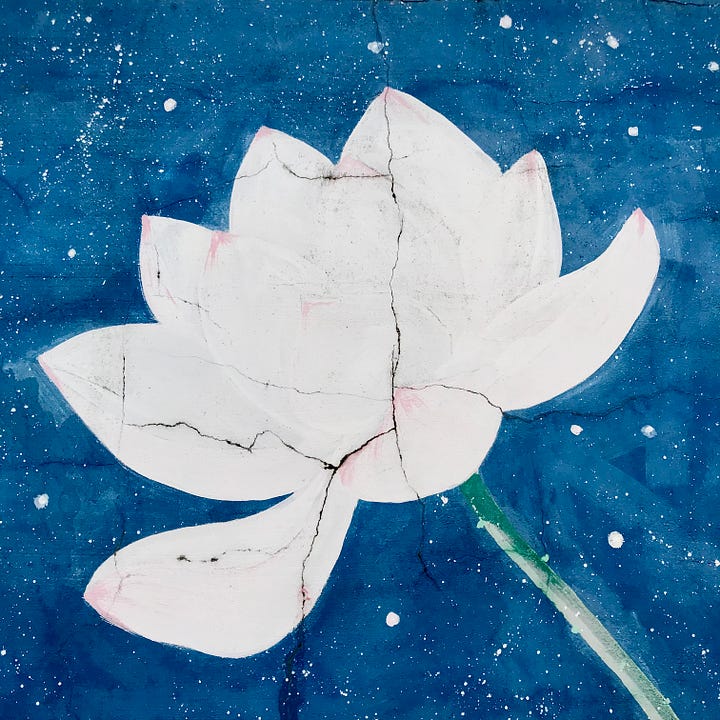
Is My Ignorance a Burden?
I dislike being a bother. I prefer solving problems on my own, moving through the world as cleanly and quietly as a ghost. So I wonder: Is my ignorance a burden on others?
A palace guard appeared irritated at my failure to follow his instructions. Several bus drivers huffed in response to my inquiries. But other than these instances, which could have occurred anywhere in the world, without language barriers, the strangers I encountered seemed as pleased to help me as I was to receive their help.
I’ve heard that Koreans would rather do someone a favor than receive a favor, because receiving a favor would put them in the other person’s debt. It might explain their willingness to intervene on my behalf, often before I’ve asked for help. I also believe Koreans felt responsible for me, a guest in their country. And I observed a deep curiosity in them, particularly in non-touristic places, such as Wonju. “Why are you here? Are you lost?” was a popular conversation starter. When they spoke a bit of English, Koreans wanted to chat.

Community
It’s only at the Toji Cultural Center that I truly regret not speaking Korean. I long to talk with authors on a level far beyond Papago’s reach. A few writers venture hesitantly into English, for which I’m grateful, but each time I express myself fully, they cannot understand me. I must reduce my thoughts and simplify my speech until little but platitudes and cordialities remain.
Then again, we’re not condemned to incomprehension. We share a certain truth: We’ve come to this residency to do the best we can, write something that our future readers might find beautiful, useful, or entertaining. I see it in their eyes and hope they see it in mine. Despite our inability to communicate in words, we are a community.
Desk Journeys aka Book Recommendations
Before traveling to Korea, I dove into the diverse world of Korean literature in translation.
I already read and loved the novels by Han Kang (1970), especially her International Booker Prize winning The Vegetarian, a speculative take on the role of wives in contemporary society. But The White Book (comparable in beauty and depth to Maggie Nelson’s Bluets) and Human Acts (on the deadly student uprising in Gwangju in 1980) are terrific, too. I have yet to read her latest Greek Lessons, which promises to be a love letter to language (!).
Recently, I adored listening to Please Look After Mother by Kyung Sook Shin (1963), a story told by the family members of a woman whose mind slowly slips away until she disappears physically and starts to show up spectrally. The book gives you an idea of the changing values in Korean society through multiple perspectives.
I also recommend In Order to Live: a North-Korean girl’s journey to freedom by Yeonmi Park (1993), a devastating read and highly insightful on what it means to live with extreme hunger under a reign of fear.
I enjoyed the excellent Concerning My Daughter by Kim Hye-Jin (1983), told from the perspective of a good-natured mother who has difficulty accepting her daughter’s unconventional choices and makes a much-needed and believable transformation.
Sharing the Toji residency with me was the award-winning author Kwon Ji Ye, whose work has been translated into French and Japanese, but not yet into English, except for one short story. She let me read “The Last Piece,” translated by Anton Hur. The story starts quietly and appears to be about a menopausal woman suffering from a mean husband, rude stepdaughter, and a bunch of sinister cats. Yet good literature is like life in Korea: Nothing is as you expect it to be. The unnamed protagonist is haunted by repressed memories, and the inhibition to mourn her loss will drive her to a desperate act.
Last but not least, I want to highly recommend The Age of Doubt, a recently released collection of early stories by Pak Kyongni (1926-2008), the founder of the residency whose 20-volume epic saga Toji (The Land) gave the organization its name. She wrote the short stories in The Age of Doubt in the years following the Korean War and through decades of martial law. I’ve written a full essay for Colorado Review, but let me summarize it here: Pak strikingly reveals the inner lives of women struggling as much with the scarcities and cruelties of the postwar era as with society’s restraints on whom they are allowed to love. She’s also a master of metaphors.
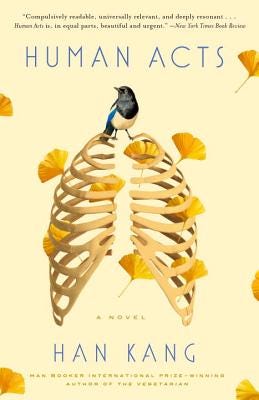
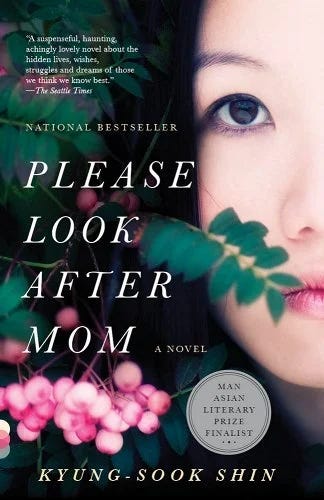
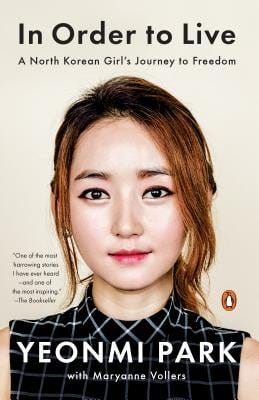
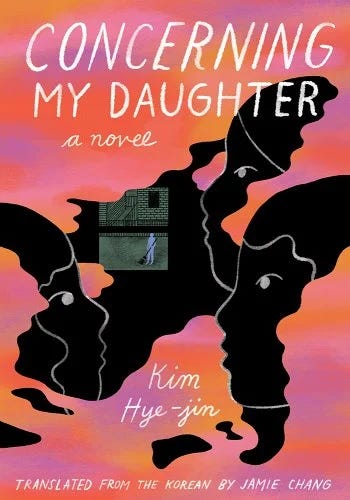
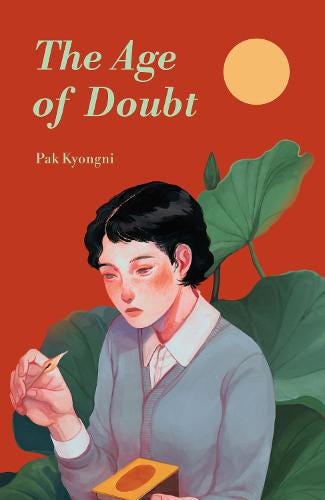
Author News
ICYMI: Showcase Object & Idea published my piece “Lost Animal Identities” in their popular Substack newsletter. I had difficulty labeling this story about sexual harassment—does magical nonfiction exist? I’ll let you be the judge.
Another flash of mine, “Five Forbidden Friends,” came out in Fictive Dream, and poses the question: Who are we when our life doesn’t allow us to let anyone get close? The accompanying artwork is too beautiful not to share with you.
Time to Say Goodbye
That’s it for now. I plan to send out a themed dispatch from a specific location each month. I would love to hear what you think of this one, be grateful if you sign up, and hope you’ll tell others about this newsletter.
Best,
Claire
P.S. I’ll leave you to muse on a poem by Ynhui Park, a Korean philosophy professor who studied at the Sorbonne and taught in Japan, Germany, and the United States.
Between Languages
Could there be
existence
sandwiched
between
languages?
Could there be
hills and grain
love and sorrow
death and life
outside of language?
Outside
of language
nothing but infinite night—
maybe freedom’s breathing there?
From Shadows of the Void by Ynhui Park, translated by Brother Anthony of Taizé. (Seoul Selection, 2014)





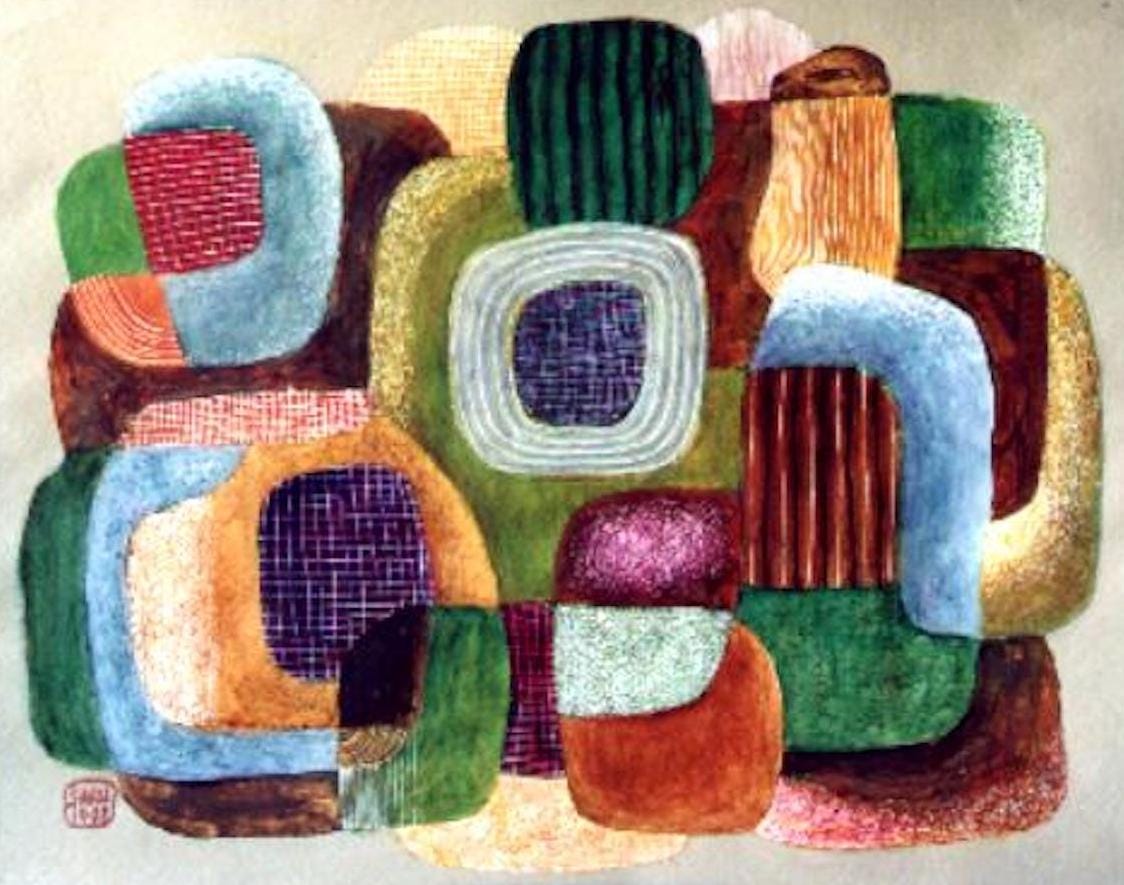
I need to know what "Black Communist America" was and tasted like! Also, the Koreans sound as kind as so many people around the world.
I’m glad to start at #1 and move through Asia with you! Your observations and stories are so astute and generous. Thank you!!